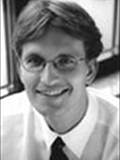NoSQL Search Roadshow Copenhagen 2013
Stefan Edlich, TweetSenior Lecturer at Beuth HS of Technology Berlin

Biography: Stefan Edlich
Prof. Dr. Stefan Edlich is a senior lecturer at Beuth HS of Technology Berlin (University of App. Sc.) with a focus on Object Databases, NoSQL, Software-Engineering, Mobile Development and E-Learning. He sold his first commercial software in 1986 and has a 27 year development experience. Beside a many scientific papers and journal articles he is a continuous speaker on conferences / it-events concerning enterprise / OO / ODBMS topics since 1993 (like OOP or JAX). Furthermore he is the author of twelve IT books he wrote for Apress, OReilly, Spektrum / Elsevier, Hanser and other publishers. He is a founding member of OODBMS.org e.V. In 2008 he started the the worlds First International Conference on Object Databases (ICOODB.org) which was continued 2009 at ETH-Zürich and 2010 in Frankfurt. Finally he runs the NoSQL Archiv, organizes NoSQL Events and wrote the worlds first two NoSQL booksPresentation: TweetNoSQL, NewSQL, ...Status Quo, Newcomers and some Future Predictions
This keynote will take a review on current technologies and trends regarding current persistence technologies. We will give an overview on today’s most prominent NoSQL and NewSQL solutions and give an insight how they improved and in what direction they move.
One of the biggest problems still remains the question: how to evaluate and to decide for a specific persistence solution?! That is why you will get an insight to strategies to come to a good choice derived from several years of experiences with NoSQL consulting. An updated catalogue will guide you and your future decisions.
In the last part we will show some interesting newcomers in the NoSQL field showing outstanding features and targeting special or even future needs in the data-storing and -processing landscape. During this keynote we will risk some predictions for the next years concerning specific databases and the NoSQL & NewSQL movement in general.
